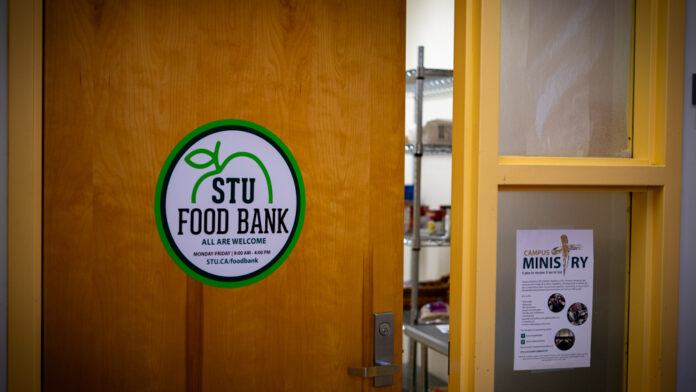
Grocery inflation has become a problem as university students try to find more cost-effective ways of shopping to battle increasing food insecurity.
Canada faces a food crisis and students are experiencing its effects. According to Canada’s Food Price Report 2023, food prices have risen by 10.7 per cent in 2022. The major spikes have been in bakery prices, which have increased by 15 per cent, while vegetables have increased by 12 per cent and meat prices increased by 7.6 per cent.
Related: High demand means empty shelves at STU food bank
“I’m stressed about the fact that I’m not actually eating,” said first-year St. Thomas University student Rochelle Clutchney. “I have to stop myself from eating all my snacks because I don’t know when I’ll be able to actually go get myself some more”.
Clutchney uses the meal hall but also requires extra food to sustain herself, which is why she had also changed her shopping habits, opting to buy groceries from “cheaper” multinational retailers like Walmart when convenient. STU’s meal hall is not open 24/7, so students cannot access it outside of regular operating hours.
“[The rise in food prices] made me feel like I can’t eat,” said Clutchney. “I don’t have any income right now … and all of my student loan money I have to save for my bills, meds and other necessities.”
Currently, New Brunswick has the second-highest rate of food insecurity out of the 10 provinces in Canada, according to a 2022 report by Proof. Since 2021, The province’s food insecurity rate has increased by 4.3 per cent, and 22 per cent of the province now lives in food insecure households.
Fourth-year STU student Lauren Acorn mentioned feeling “defeat” every time she leaves the grocery store.
“Buying no-name brands over the last year while living by myself in order to save more money is one way I have had to change the way I shop,” she said.
Not only are students stressed about grocery prices, but they have to pay for resources required for the school year, such as tuition, textbooks and school supplies.
At STU, tuition alone is $8,380 for Canadian students and $18,610 for international students. According to the More Than Tuition campaign, launched by St. Thomas University Student’s Union, 51.3 per cent of surveyed students expressed concerns about the rising cost of living.
The additional pressure of paying for groceries only increases student’s financial burden.
“Do I want to buy my textbooks or do I want to eat?” said Acorn.
